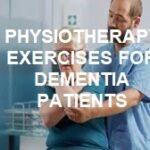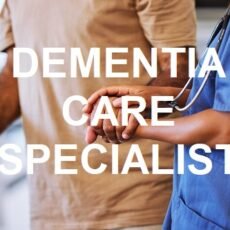To date, dementia still has no cure but persons with the illness can consider alternative therapies for dementia to improve symptoms and improve quality of life.
Alternative therapies refer to the treatment that is used in place of conventional medical care.
They normally target psychological, emotional, cognition, and behavioral symptoms that persons with dementia experience.
Examine some of the therapies that individuals with dementia can benefit from below.
Contents
14 Best Alternative Therapies For Dementia
Occupational Therapy
An occupational therapist can help evaluate the strengths and weaknesses of a person who has dementia. This can assist the professional understand the areas where the affected individuals need help the most.
Working with the therapist can see a person improve some of their physical skills.
The experts can also come up with suggestions for home and living changes to make it safer and better adapted to the needs of the person with the progressive disease.
Examples of modifications that you can make include:
1. Ensuring that there is a fence surrounding the yard so that the affected person will not get away, wander, and get lost in the neighborhood.
2. Organizing the closet so that appropriate outfits for the current season are within reach.
3. Identify simpler versions of activities that the individuals used to enjoy so that they can continue spending time on them.
For instance, if the said individual loved completing puzzles before a positive dementia diagnosis, the occupational therapist can look for easier puzzles that the person will continue to enjoy.
Reminiscence Therapy

Also known as life review therapy, reminiscence therapy (RT) is one of the most common alternative therapies for dementia.
RT encourages individuals to revisit past memories.
It is a kind of talk therapy where experts use sensory aids or props to help spark memories.
Examples of these may include sounds, smells, songs, photos, or stories from an individual’s past.
The therapy can be conducted in a group setting or one-on-one sessions.
Reminiscence therapy can offer several benefits to affected individuals like:
- Enhanced cognition
- Improved behavior and mood
- Higher confidence and self-worth
- Better connection with loved ones
- Reduced depression
- Reduced agitation
Physical Therapy
Physical therapy is beneficial to individuals with dementia because it can help enhance their balance reducing the chances of tripping, falling, and injuring themselves.
This is because the therapy mainly focuses on strength training, endurance, flexibility, and balance.
A physical therapist can come up with appropriate exercise programs that an individual can take part in to help them with movement.
Additionally, it can help with boosting mood and decreasing aggression.
When a person is active there is an increase in the release of endorphins that soothe the brain.
Most people who take part in physical therapy also enjoy improved sleep.
Physical therapy can also help a person maintain their independence a move that can help them conduct daily living activities like bathing, eating, grooming, and toileting without too much difficulty for the longest possible time.
Studies also show that physical therapy can also help with the slowing down of memory loss. Research indicates that it is one of the best ways to enhance brain health.
Music Therapy
Sound and music play are an important part of human life whether listening to it, dancing, or taking part in its creation. People respond to music at a tender age even before language and words develop.
For years, music is in use to engage and communicate with persons who have dementia. As the illness progresses, music can help enhance well-being and communication.
This is because music stimulates different parts of the brain which can help an affected person connect with past memories and express their feelings.
There are multiple different ways of incorporating music, including:
- Singing a person’s favorite tunes
- Playing instruments
- Listening to a live performance or recorded music
- Listening to music through headphones
Music therapy is normally conducted by a trained music therapist who can work with an individual or a group. This kind of therapy is known to reduce anxiety for most people with dementia.
It can also enhance cognitive function including perception, thinking, mood, feelings, and behavior. The therapy can also encourage physical exercise if it prompts a person to dance or move around while enjoying the beat.
Music also reduces the incidences of social isolation by encouraging social interaction and promoting activity in a group setting.
Art Therapy

Art therapy is another example of beneficial alternative therapies for dementia. Most people with this progressive disease will enjoy taking part in various creative activities including art.
Art therapy creates a platform where persons with dementia can take part in fun art projects as they express their creativity. The therapy stimulates the brain in numerous ways.
For instance, it can help encourage speech or stir dormant memories. Art therapy can also create a sense of purpose and accomplishment for persons with the illness.
Some studies report that art activities can help enhance cognitive function and social interaction. Non-verbal seniors can start smiling, laughing, moving, or speaking once they take up art therapy activities.
Experts agree that the best forms of art therapy are the ones based on personal memories and passions. Examples of art activities that individuals with dementia can take part in include pottery, paint by number projects, watercolor painting, pencil or charcoal drawing, participating in community art projects and making cards, jewelry, and many more.
These activities can help boost hand strength, relieve stress, and stimulate senses.
Bright Light Therapy
Bright light therapy is a promising treatment that can help people who have dementia. The therapy is thought to affect brain chemicals related to sleep and mood.
Most persons who have dementia will experience sleep issues at some point during the illness. Bright light therapy can help normalize a person’s sleep-wake pattern.
Studies show that this type of therapy is most effective for persons with mild to moderate dementia.
The administration of this therapy is best done during morning hours so that it can entrain the circadian rhythm in a bid to reduce interruption of the normal sleep-wake cycle. This results in increased sleeping hours at night and less daytime sleeping.
Pet Therapy

Also known as animal-assisted therapy, this is another example of useful alternative therapies for dementia. The therapy encourages persons with the illness to spend time with various types of domestic animals like cats, trained dogs, birds, fish aquariums, or aviaries, etc.
Spending time with pets offers unconditional love, companionship, and fun for persons with dementia thanks to their friendliness and non-threatening ways. The animals can either live with the affected persons or somebody can bring them once in a while.
Other benefits associated with this type of therapy include:
- Improving mood
- Encouraging social interaction
- Better nutrition
- Offering a calming effect
- Improved physical activity
- Reducing behavioral problems like aggression, agitation, anxiety, loneliness, and depression
Laughter Yoga
Some studies indicate that people with dementia can benefit from laughter yoga. The primary goal of this kind of therapy is to bring more laughter into the lives of individuals with the disease.
Laughter offers numerous health perks for complete mind and body wellness. It can help to relieve stress as a person gets to feel happy, positive, and relaxed after a session of genuine laughter.
The best part about this therapy is the fact that a person does not even have to comprehend a joke or punch line to start laughing.
Laughter is stimulated as a form of exercise ensuring that people just burst out laughing for no reason.
Aromatherapy

Aromatherapy can be defined as an ancient healing practice where essential oils from herbs, trees, plants, and flowers are used to enhance the spiritual, mental, and physical well-being of affected people.
Essential oils can be applied to the skin or inhaled. Improving cognitive function in persons with dementia is one of the health benefits that come from aromatherapy. Needless to say, the therapy boosts brain performance and improves the ability to remember events.
Aromatherapy can also help to relieve some common dementia symptoms like depression and anxiety.
Numerous studies reveal that essential oils from lemon balm, bergamot, and lavender can help a person with dementia suppress agitation, aggression, and a host of other psychotic symptoms.
Massage Therapy
Massage therapy is one of the alternative therapies for dementia that continues to attract increased attention when it comes to medication alternatives that ease dementia behavioral symptoms.
Moreover, massage can be incorporated in dementia care to offer a human touch that offers a wide range of benefits to individuals with the progressive illness such as:
- Reduced feelings of anxiety, isolation, and insecurity
- Increased feelings of care and reassurance
- Decreased levels of agitation
- Improve sleep
- Ease pain
- Reduce physical expressions like wandering, pacing, and resisting care
- Decreased heart rate and blood pressure
- Inducing deep levels of relaxation
Massage therapy is also known to communicate comfort and support in palliative care. There are different types of massages that persons with dementia can benefit from including back massage, hand massage, and foot massage.
Acupuncture

Acupuncture is considered one of the safe and effective alternative therapies for dementia. It is an ancient Chinese method that is in use to treat various medical conditions for years. Acupuncture mostly involves the insertion of needles in specific locations of the human body to help restore proper energy flow to treat symptoms.
Controlled investigations divulge that acupuncture helps to enhance the flow of blood to the brain ensuring that the organ gets adequate nutrients and oxygen. Several studies show that acupuncture can also help in enhancing mood as well as cognitive skills.
Others indicate that acupuncture can help increase both motor and verbal skills as well as attention and memory. One of the studies also revealed that acupuncture can help treat depression and anxiety in people with dementia.
The studies, however, do not give conclusive results on whether acupuncture can help cure dementia; hence, more research still needs to be done on this treatment option.
Doll Therapy
Many people with dementia can also benefit from doll therapy. This normally involves the use of soft toy animals or life-like dolls. These offer “companionship” to the persons with the illness especially in the later stages of the illness providing perks like pleasure and relaxation without the responsibility of taking care of the dolls.
For some, holding a doll or soft toy helps them remember when they were holding their children or when they were caring for their beloved pets. This sensation that comes with holding something soothing can help offer a connection to the outer world renewing a sense of purpose in persons with the progressive illness.
This can also lead to an increased level of liveliness and activity levels. There is evidence that confirms that the use of soft toys or dolls can be especially helpful to persons who do not engage with others or are constantly struggling with anxiety, and restlessness.
Validation Therapy

A brief description of validation therapy would be a kind of counseling. A professional therapist will hold the hand of the person with the illness paying close attention to their feelings.
The experts are trained to study body language and the voice of the weak. This helps the professionals to communicate with persons with the disease in a manner that acknowledges their actions and words with empathy and respect instead of anger, embarrassment, or dismissiveness.
This type of therapy is normally offered to people who are in the last stage of dementia nearing the end of life. It usually helps the affected individuals feel sage, useful, loved, and at peace before breathing the last breathe.
Reality Orientation
When it comes to reality orientation, a person with dementia will work closely with a professional therapist who will repeat details about the place, time, and other crucial details regularly.
This helps the person with the illness stay oriented to the present moment a move that can help reduce confusion. Using large calendars and clocks can also help make things easier.
It is important to understand that reality orientation does not work for everyone who has dementia. This is especially for persons who believe that they are in a different place or time. In such instances, this type of therapy ends up upsetting the affected individuals.
Closing Remarks
Caregivers and persons who have dementia must approach the use of alternative therapies for dementia with care. This is because the therapies usually have different results on different people.
It is best to consult an individual’s doctor before trying out any therapy to be on the safe side. After trying out one option and it does not work, it is best to abandon it and look for the ones that will give the suffering individual the best results.





![What is Pseudodementia? [Diagnosis, Treatment] What is Pseudodementia? [Diagnosis, Treatment]](https://readementia.com/wp-content/uploads/2023/09/What-is-pseudodementia-230x230.jpg)

